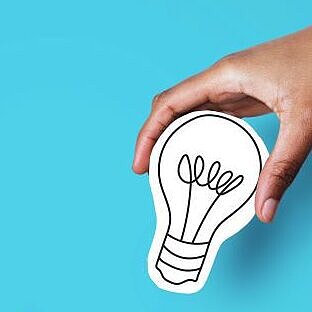European Court of Auditors considers "REPowerEU" action plan to be underfunded
Source: Energy & Management Powernews, July 28, 2022
The EU wants to become independent of Russian energy imports by 2027. The action plan adopted for this purpose, however, is underfunded, according to the European Court of Auditors.
The EU Commission had presented its "REPowerEU" program in early March to respond to the invasion of Ukraine by Russian troops. It was signed off in principle by the heads of state and government a few days later. The goal is to completely stop importing fossil energy - coal, oil, natural gas - from Russia by 2027.
The strategy is based on three pillars: The replacement of Russian coal, oil and gas supplies with other suppliers, and the purchase of green hydrogen under long-term contracts. In purchasing gas and hydrogen in particular, the EU states are to cooperate more closely. Secondly, gas consumption is to be reduced by 13 bcm (billion cubic meters) through energy-saving measures. Finally, the expansion of renewable energies is to be accelerated: more wind and solar projects are to make the import of 50 bcm of natural gas unnecessary by 2027. Another 17 bcm could be replaced by greater use of biogas, according to the Commission.
These good intentions are built on sand, according to the European Court of Auditors (ECA), because they are "likely to be difficult to implement in practice." In an ECA opinion published in Luxembourg, it says: "The success of Repower EU will depend notably on complementary actions at all levels and on securing funding of around 200 billion euros."
While the program identifies the main challenges facing the EU following Russia's invasion of Ukraine, there are "inconsistencies" in the design of the actions. For example, while the program's objectives are focused on the EU as a whole, the measures are proposed by member states, he said. This poses the risk "that projects of strategic importance for the EU as a whole will not be financed by Repower EU."
Court of Auditors criticizes funding coming from Corona funds
The Commission's estimate of funding needs of 210 billion euros is also clearly disproportionate to the additional 20 billion euros provided under the EU budget. The remaining sources of funding were outside the Commission's control and depended on the willingness of EU countries to transfer loans from other areas, such as cohesion or agricultural policy, to the new priorities. The ECA therefore warns that "the total amount actually available may not be sufficient to cover the estimated investment needs."
The ECA is also critical of the fact that most of the EU funding comes from the Corona Fund (RRF). The RRF, which is intended to help member states primarily in the short term, is not suitable for financing long-term investments that would make the EU independent of Russia, it said. Its priorities reflected "neither the current challenges and objectives of Repower EU nor the specific needs of EU countries."
Under the Repower EU program, the Commission wants to suspend the principle that funded projects must be fundamentally "sustainable": "do no significant harm." But that, it said, contradicts the RRF, which places particular emphasis on environmental and climate protection. It is also "unlikely" that cross-border projects will be identified and funded. Although they, in particular, played an important role in achieving Repower EU's goals. Without comparative analyses, it would also be impossible to assess which projects made the greatest contribution to energy security and independence.
The attachment of Repower EU to the Corona Fund does not take into account the different dependence of member states on Russia, he said, because RRF funds are allocated according to the size of the population, the national product per capita and the unemployment rate. However, the countries most dependent on Russia would have to make the most investments. Germany, for example, which is most dependent on Russian energy, receives only eight percent of RRF funds. Italy, on the other hand, which gets only half as much energy from Russia, receives twenty percent.
While the auditor in charge, Ivana Maletic, admits that the EU had to react quickly to the new situation, Repower EU may not be the right answer. This is because it would not allow the EU's "strategic projects that would have an immediate and profound impact on energy security and independence to be quickly identified and implemented."
Author: Tom Weingärtner



